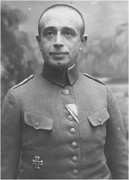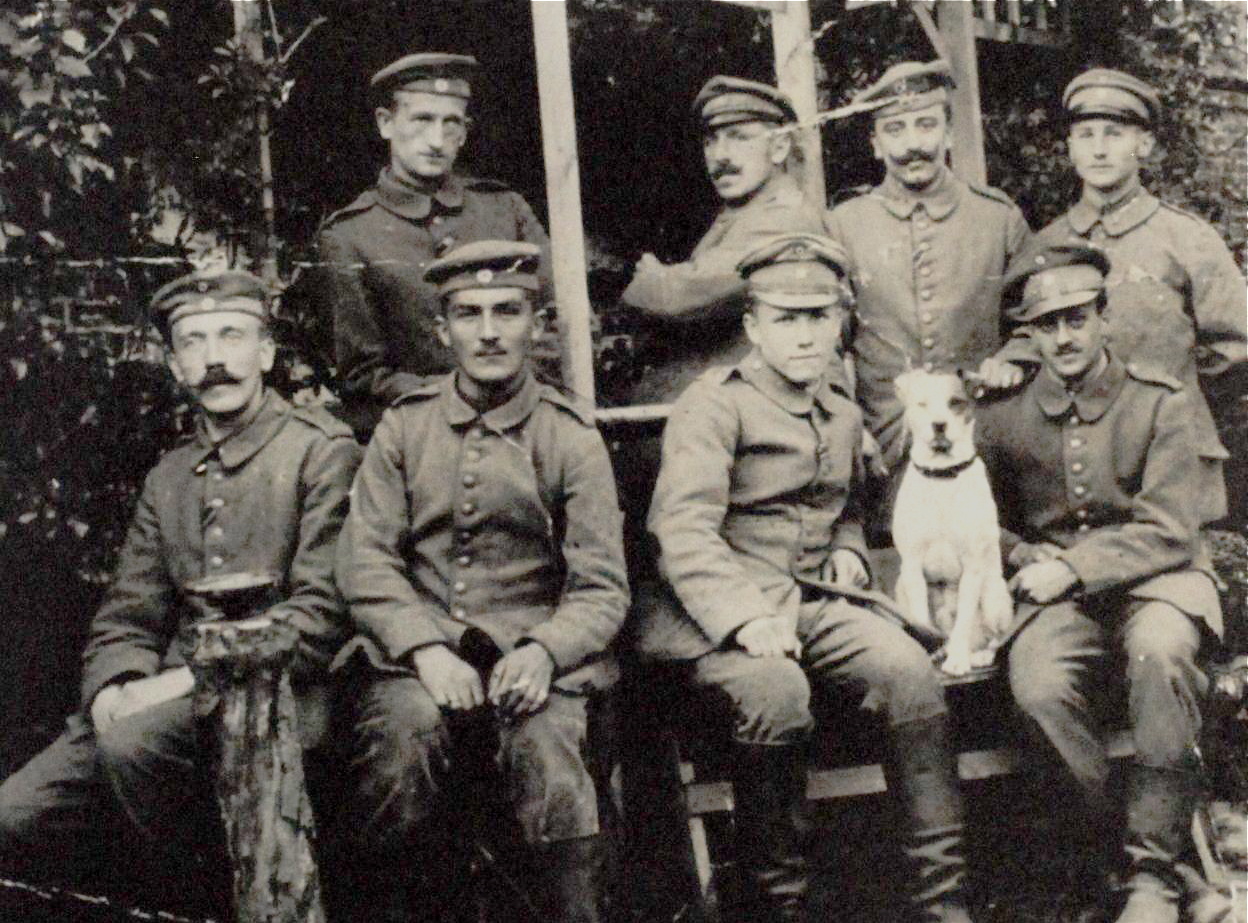
Adolf Schicklgruber, otherwise known as Adolf Hitler, was a dispatch runner in the German army on the Western front during World War I. A private in the 16th Bavarian Reserve Infantry Regiment, or the List Regiment, he later claimed the war radicalized him and constituted the most formative years of his life in terms of the formation of his ideas, particularly his hatred of Jews.
Given the importance he ascribed to this period, the few surviving letters and postcards he wrote add up to very little in explaining Hitler’s development. The virtual absence of such wartime documents means that historians can only understand this brief era by examining the List Regiment and his place in it.
Thomas Weber, who teaches history at the University of Aberdeen, adopts this approach in Hitler’s First War, a probing and thoroughly researched book published by Oxford University Press. Weber’s book is all the more relevant as the 75th anniversary of Kristallnacht, on Nov. 9, approaches.

For Hitler, a failed painter whose prospects seemed dim in 1914, the outbreak of the war was a supremely propitious event. Writing in Mein Kampf, he observed, “I am not ashamed to acknowledge that I was carried away by the enthusiasm of the moment, and that I sank down upon my knees and thanked Heaven … for the favor of having been permitted to live in such time.”
To Hitler, the war would enable the German people “to shed the last drop of their blood for the cause” and vengefully look forward to “a radical settlement of accounts.”
Typically for southern Bavaria but uncharacteristically for Germany, the List Regiment was overwhelmingly Catholic (88 percent), with a sprinkling of Protestants (a little more than 11 percent) and a relative handful of Jews (0.8 percent). In all, 59 Jewish soldiers would serve in the regiment, including Hugo Gutmann, a lieutenant and winner of the Iron Cross 1st class for heroism.
Gutmann was one of 16 Jewish officers in the regiment, which meant, as Weber notes, that 12 percent of its Jewish servicemen were officers, compared to the overall figure of 2.5 percent for all Germans. Considering that no practicing Jews had been allowed to become officers in the German army from 1885 to 1914, the disproportionate number of Jewish officers in the List Regiment during the great war could be taken as a sign of social progress.
As Weber points out, Hitler’s job as a dispatch runner at regimental headquarters was a very dangerous one. By the third month of the war, about one-quarter of its recruits, or 725 soldiers, had already been killed. Weber speculates that Hitler could easily have been killed.
In 1916, during the Battle of the Somme, Hitler and two of his fellow runners were wounded when a British shell landed near their position in France. In Hitler’s case, a shell splinter pierced his left upper thigh. According to a medic who treated him, Hitler lost one of his testicles in that ferocious battle.
Judging by a letter he wrote in 1915, Hitler hoped he would return to a “purer” Germany, “less riddled with foreign influence,” when the war ended. “Hitler’s wish for a … less cosmopolitan Germany was expressed in language that had been commonplace among the radical Right in both Imperial Germany and the German lands of the Habsburg Empire,” Weber writes.
Conventional wisdom suggests that Hitler, who was described as an outsider and recluse by his fellow soldiers, was an antisemite when he enlisted in the army. Antisemitism was quite common in Germany in the second year of the war. “Up and down the country, claims were heard that the Jews were not pulling their full weight and that they were profiteering from the war,” Weber writes.
The allegation that Jews were not fully contributing to the war effort was, of course, a blatant lie fanned by the far right. In fact, German Jews were extremely patriotic. According to official statistics, 12,000 Jewish soldiers sacrificed their lives for Germany during the war, a higher proportion than the rest of the population.
The canard that Jews were dodging front-line duties prompted the German armed forces to conduct a census. The army’s odd decision not to publish the results fanned the flames of antisemitism.
“Calculations carried out after the war showed that nation-wide almost exactly the same percentage of Jews as gentiles had served in the German armed forces,” says Weber. He adds that the casualty rate in Hitler’s List Regiment also refuted the claim that Jews were slackers.
By 1918, when the last shots of the war were fired, one-third of the Jewish soldiers in the regiment had been honored for bravery. More to the point, 17 percent of its Jewish recruits had died in action.
Weber claims that no evidence exists that Hitler had grown into “a full-blown and overt antisemite” by 1917. “Other than Hitler’s own mythical claims in Mein Kampf, the only indicators that suggest that Hitler had already turned into an open antisemite are three hagiographical accounts by former comrades … that were published only in the 1930s.”
Hitler’s antisemitism should have been tempered by the fact that a Jewish officer, Hugo Gutmann, recommended him for the Iron Cross 1st class. But after his rise to power in 1933, Hitler went to great lengths to render Gutmann a “non-person:”

Weber adds, “If Hitler had really been a fervent, overt and active antisemite, it seems odd, to say the least, that a Jewish officer would go out of his way to propose him for an Iron Cross.”
Weber argues that Hitler’s antisemitism evolved after the war, when Germany was convulsed by political instability and he was posted to the army’s counter-revolution propaganda unit. By that juncture, Hitler had evolved into a fullblown antisemite, claiming that Jews were a “leech upon the peoples of the world” and should be removed from Germany.
During this period, Hitler attended a meeting of the then obscure German Workers’ party, soon to be renamed the National Socialist German Workers’ party. Hitler joined the party and found both a home and social network in it after leaving the army in 1920.
As a politician, Hitler used his wartime experiences as a rallying cry for the establishment of a thousand-year German empire bereft of Jews. The Nazi party, meanwhile, glorified Hitler’s role as a foot soldier in the war.
In Weber’s estimation, 17 percent of the veterans of the List Regiment joined the Nazi party. The comparable figure in the general population was 10 percent.
From the moment Hitler became Germany’s chancellor, Jewish vets like Gutmann were subjected to persecution. Gutmann’s business in Nuremberg was boycotted, and in 1937, he was interrogated by the Gestapo. After Kristallnacht in 1938, he fled to the United States and settled in St. Louis.
By 1943, a few Jewish veterans of the List Regiment continued to live in Germany as “protected” Jews in mixed marriages. The remainder had emigrated, committed suicide or had been murdered.
